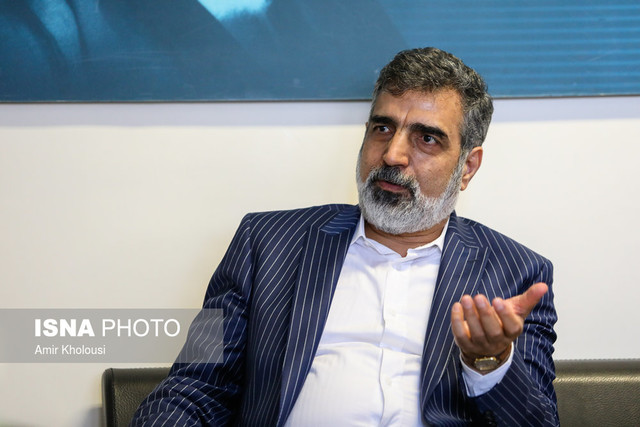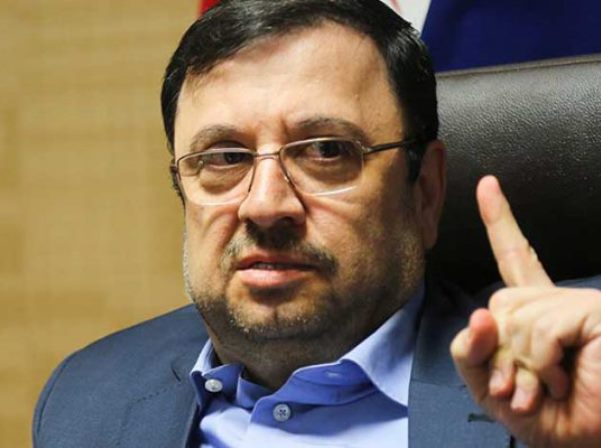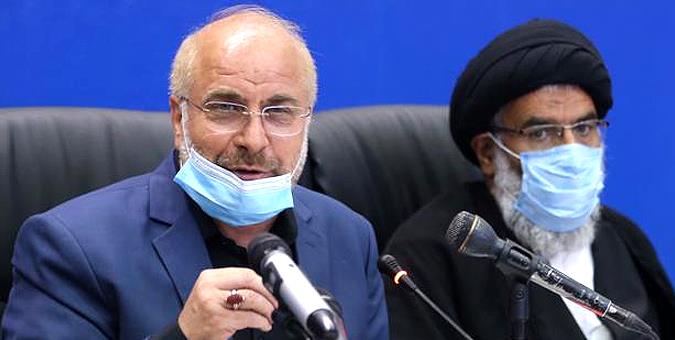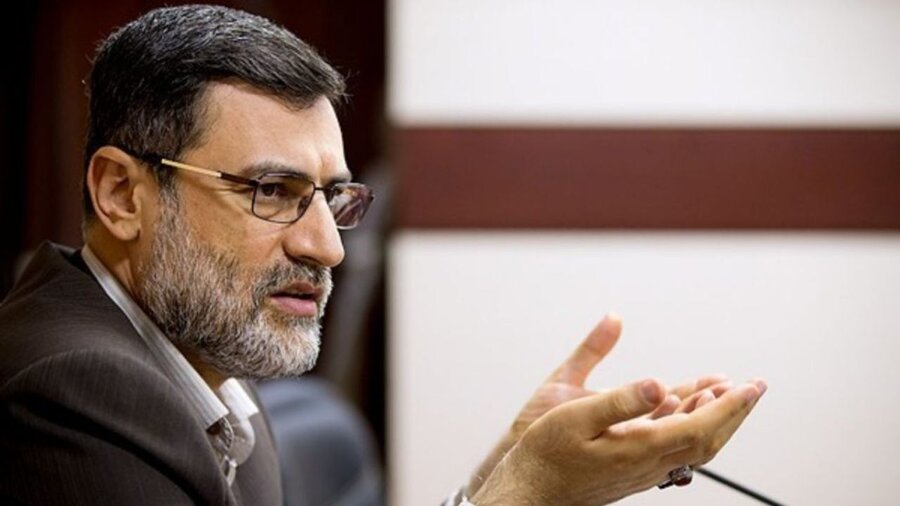
Iran Isn’t Just Northern Tehran!
With the beginning of the new school year amid the coronavirus crisis, the editorial of Aftab Yazd is critical of how Iranian officials are pretending that the entire country is enjoying the luxury facilities available to students who are studying in schools located in northern Tehran.
When we look at the news of schools reopening in Iran, one thing is obvious: people are unhappy, but as always, the officials are happy! People are sending their loved ones to school fearing that they might get infected at any moment. Meanwhile, officials have made and announced their decision, and they keep saying that everything is okay. Well, they are paid to carry out their bosses’ orders, aren’t they?
Here the question is: don’t these officials who send people’s children to school amidst all these risks have any children themselves? Do they have a special vaccine or medicine which explains why they are so relaxed in making this decision?
To answer such questions is not difficult. We should just take a look at images and videos from the first day of children going back to school. In all these images and videos, the schools are clean, and students are sitting with masks, hand sanitizers are placed on all desks and teachers are carefully observing social distancing.
But when one carefully looks at the schools and their locations, it becomes clear that they are all located in northern Tehran where people are living luxurious lives.
The question is: do schools in Sistan and Balochistan province have such facilities? Do even schools in poor locations in the city of Tehran have these facilities?
Interestingly, Iranian state TV and other media outlets have gone to these luxury schools where the students are the children and grandchildren of officials who do not care about the stress and anxieties of ordinary people. The offices of these officials are located in northern Tehran and they are not aware of the problems people are facing. To them, everything is okay in so far as they are paid astronomical salaries, their children are studying in Switzerland, and their grandchildren go to schools where health protocols are strictly followed.
The Fate of Promises!
The editorial of Aftab Yazd focuses on the recent trip by Parliament Speaker, Mohammad Bagher Ghalibaf, to Khuzestan province, stressing that he should keep his promises to the people. Otherwise, this will only further increase the hopelessness, frustration, and distrust among the people.
Ghalibaf’s trip to Khuzestan province and the promises he made there cast doubt over his intentions and whether the promises he made will be met. First off, it must be noted that such trips are not unprecedented. In previous parliaments too, parliamentary speakers went to different provinces and made such promises. So, although this time Ghalibaf’s trip made headlines, it is nothing new.
Such trips have always created doubts. Under the current circumstances, one can think that Ghalibaf is seeking to improve the country’s conditions, injecting some hope into society, creating peace and satisfaction among the people by making promises to them. On the other hand, one can argue that the aim of such trips is for personal gain and to create popular support to become the next president of Iran.
We can only speculate about his intentions now; we must wait and see what happens in the future. But what is important is that officials make promises which are never fulfilled. It is not just the current Parliament speaker who has made such promises; President Hassan Rouhani too has made different promises that were not fulfilled and created hopelessness and frustration in society.
Likewise, if the promises made by the Parliament speaker on his recent trip to Khuzestan province are not fulfilled, this will significantly contribute to the sense of public hopelessness in this province and will further damage public trust towards officials.
Students’ Lives Must be a Priority
With the beginning of the new educational year in Iran, the editorial of Arman Melli explains why sending children to school puts their lives in danger.
The coronavirus has impacted different parts of society, particularly the educational sector. As a result, schools and universities were closed, and reopening them has created serious doubts and concerns.
Let’s say a school has 40 students, and 20 students have to go to school. Consider how much it will cost for each student to pay for masks every day. This will not be possible for all families throughout the year.
It must be noted that Iranian President Hassan Rouhani did not take part in the ceremony to open schools in person. But the new educational year started with students going to classes in person!
On the other hand, the health minister is concerned about another wave of coronavirus. Even if the schools have a safe environment, children travelling to and from school increases the risk of infection.
What is more, it is impossible to provide all schools with hand sanitizers and other disinfectants. Can they disinfect the water coolers and bathrooms each time students use them? In schools with small yards, how can students observe social distancing?
They might say that countries like Germany, England and America have also reopened schools. But the strong infrastructure in Germany, for example, has made it possible to halve the number of students attending school. And if a student, principle, or teacher gets infected, the entire group is quarantined.
But given Iran’s facilities, primary schools and middle/high schools are at high risk. Schools were reopened, but the fact that young children do not regularly observe health protocols was overlooked.
Some African countries have closed schools for one year, because they know that any decision concerning people and their lives has ramifications. Students’ lives must be a priority; Iranian society doesn’t have the capacity for another crisis.
The Country Is in Crisis; What Should Be Done?
The editorial of Setareh Sobh argues that now that Iran is suffering from different crises, the only way out is to negotiate with US President Trump and take concessions from him.
Due to the way Iran is administered, poor planning/strategy, and constant tensions with the West, particularly the United States, the country has been dealing with many crises over the past decades. But after the United States pulled out of the nuclear deal and implemented tough sanctions against Iran, the crisis in Iran has become more serious.
With the outbreak of coronavirus since February, the country’s economy has severely deteriorated and the impact on the lives of the people is becoming increasingly clear. There is no positive prospect in the short run.
Iranian President Hassan Rouhani has said repeatedly that we have defeated America. However, his deputy Mohammad Bagher Nobakht, head of the Budget and Planning Organization, says that because of the sanctions, Iran cannot sell oil for food or oil for medicine. And if any oil is sold, it is impossible to transfer the money into the country due to sanctions and the failure to ratify FATF legislation.
The head of the Iran-China Chamber of Commerce has said that due to the failure to ratify FATF bills and Iran being blacklisted by the FATF, it is not possible to conduct financial and commercial transactions between Iran and China – let alone other countries including Europe and the Middle East as they are scared of US sanctions and do not want to engage in transactions with Iran.
The truth is that after the United States pulled out of the nuclear deal, it holds no economic gains for Iran; its only gains are political. If there was no nuclear deal, the UN Security Council wouldn’t disagree with the US demands.
The country is run by oil revenues and taxes. But as a result of sanctions, coronavirus, mismanagement, and not having any plans, the government’s revenues have significantly dropped.
These days, US President Trump’s position is weak, so the best time to take concessions from him is before the US presidential election on November 3. Those who think that with Trump gone, they can take more concessions from Joe Biden are mistaken.

Iran is Building a More Modern Production Hall for Advanced Centrifuges in the Mountains Near Natanz, Says Salehi

The Head of the Atomic Energy Organization of Iran announced that Iran has started to build a “more modern, wider and more comprehensive hall” for the production of advanced centrifuges in the mountains near Natanz nuclear facility.
Speaking at the Parliament’s National Security Committee, Ali Akbar Salehi said this new hall would replace the one which was damaged by fire on July 2.
Referring to the “recent sabotage” at the Natanz nuclear site, Salehi said his organization “began taking necessary measures in two phases since that incident happened.”
The first phase was to “provide equipment and produce advanced centrifuges” and the second phase was building a “more modern, wider and more comprehensive hall in all dimensions in the mountains near Natanz.”
On July 2, spokesman for the Atomic Energy Organization of Iran Behrouz Kamalvandi announced that there was an “incident” at the Natanz uranium enrichment plant, adding that the incident occurred in one of the buildings which was under construction there.
Meanwhile the spokesman for the Atomic Energy Organization of Iran said that the current production level of enriched uranium in the country is now the same as what it used to be before the nuclear deal.
“We currently have more than 3 tons of enriched uranium available to us, and I can say that we can produce between 250 kilograms to 300 kilograms each month with the current process – which equals the output capacity we had before the JCPOA,” Kamalvandi pointed out.
He emphasized that Iran can increase its production output rapidly due to the new-generation centrifuges it has. The AEOI spokesman also pointed to Iran’s development in the production of nuclear materials, research and the building of nuclear power plants.
He said we could produce 4 tons of yellow cake every year during the implementation of the JCPOA, but the figure has reached 10 tons at present. Kamalvandi added that Iran might start cold tests at the Arak reactor next year. “However, the process of completing this reactor is predicted to take two to three years.”
Iran’s Armed Forces to ‘Develop’ Online Messenger Services; Head of Iran’s Supreme Council of Cyberspace Threatens to Filter Social Media

The Minister of Information and Communications Technology, Mohammad Javad Azari Jahromi, has said that the General Staff of the Armed Forces offered its help to develop infrastructure in regard to search engines and “we accepted it and cooperation was initiated.”
Azari Jahromi noted that the General Staff of the Armed Forces would also help with developing messenger apps.
Iran’s ICT minister made these remarks on the same day that the head of the Supreme Council of Cyberspace said if social media apps violate the country’s laws or contribute to creating cultural, social, political and security issues for the establishment, they will be filtered.
Speaking on a television program, Firouzabadi cited China as a successful “example” in filtering the internet. As for the reason why some social media apps are filtered in Iran, Firouzabadi said Twitter had been ordered by the White House to interfere in the unrest following Iran’s 2009 presidential election.
As for Telegram, Firouzabadi noted that this network had promised to cooperate with Iran, but it did not.
Last week several Parliament members submitted a bill entitled “Reforming Social Messenger Apps” to the Parliament’s presiding board, urging to replace foreign social messenger apps with domestic ones.
The bill, signed by 40 lawmakers, proposes jail sentences and fines for those who offer social messenger apps without legal authorization or sell and distribute VPNs and anti-filtering software. “Hardliners” and MPs have called the government’s performance in managing social media in Iran “unbridled,” stressing the need to launch and boost a national internet network.
Khuzestan Suffers From a Water Crisis, Widespread Unemployment, Unfinished Projects, MPs Say

During the trip of Parliament Speaker Mohammad Bagher Ghalibaf to Khuzestan, the representatives of this province presented reports regarding the issues faced by this province, highlighting a water crisis, widespread unemployment, and major unfinished projects all over the province.
In a meeting at the end of his trip, Ghalibaf emphasized that in spite of the fact that Khuzestan is in possession of 30 percent of water resources in Iran, 700 villages in this province are suffering from a water crisis.
During the past year, the water crisis in Khuzestan’s villages has been raised repeatedly, and some lawmakers announced that 800 villages were suffering from water shortages.
In June, the residents of Gheyzanieh village, located near Ahvaz, gathered to protest water shortages and they were confronted by law enforcement agencies.
In a meeting with the Parliament speaker, MP Mohammad Molavi who represents the city of Abadan, said that because of improper living conditions, 200,000 people have migrated from Khuzestan to other areas.
In 2018, Tehran MP Parvaneh Salahshour had said that in “recent years” about 400,000 people migrated from Khuzestan to Iran’s northern cities.
Mahshahr MP Habib Aghajeri also said in this meeting with Ghalibaf that although big industries operate in this region, “the rate of unemployment is about 25 percent.” He pointed to the water crisis and slum dwellings as other issues in this region, adding that his constituency possesses the most money and financial resources in the country, but “the money is in Tehran.”
The MP of Ramhormoz and Ramshir Ebrahim Matinian also talked of unfinished projects in this province.
Long-Term Parliamentary System Needed in Iran, Says Parliament Deputy Speaker

Iranian Parliament Deputy Speaker Amir Hossein Ghazizadeh has called for establishing a long-term parliamentary system in Iran as the Parliament cannot hold the current government to account via questioning or impeaching its officials.
Ghazizadeh said that the Parliament is unable to monitor many of the government’s programs and the president is elected by popular vote, so one can hardly question him. He criticized Iran’s political system, adding: “We need to replace individuals quickly when necessary; but if we do so under current conditions, we’ll spark a political crisis.”
In 2011, Iran’s Supreme Leader Ali Khamenei said that if one day it is decided that a parliamentary system works better in the country, there is no problem in changing the current system.
In 2019, however, Khamenei changed his position in this regard and said the parliamentary system has been reviewed in detail and it has been decided that “the problems of a parliamentary system are much more than that of a presidential one.”
In a parliamentary system, a prime minister chosen by Parliament heads the executive branch; unlike in a presidential system in which the executive institution is presided over and supervised by a president elected through a popular vote.
